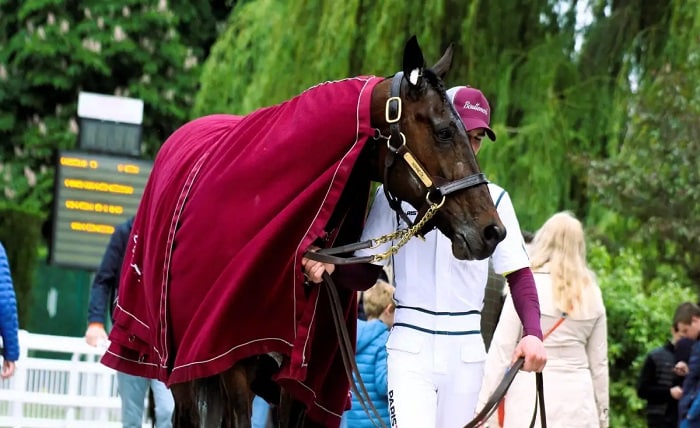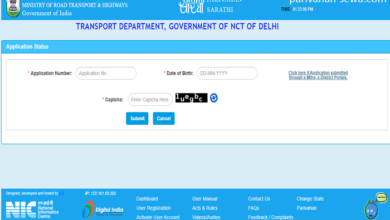
Horse racing is a thrilling sport that captivates millions across the globe. If you’ve been following the industry closely, you’ve probably heard of “gazettedupmu2 demain tocard gagnant placé” — a term that has gained popularity among both novice and seasoned bettors. In this blog post, we will dive into the meaning of this phrase, how it plays a role in betting, and how you can use this information to increase your chances of winning. Whether you’re new to the world of horse racing or an experienced bettor, this guide will provide valuable insights.
What is Gazettedupmu2 Demain Tocard Gagnant Placé?
At its core, the phrase “gazettedupmu2 demain tocard gagnant placé” is a betting term used in the world of French horse racing. To break it down, “gazettedupmu2” refers to a set of races, “demain” translates to “tomorrow,” and “tocard” refers to an underdog or outsider in the race. “Gagnant” means winning, while “placé” indicates a horse that finishes in one of the top positions (usually first, second, or third) but not necessarily in first place. The phrase essentially means predicting a tomorrow’s race involving an outsider, one that has the potential to place (but not necessarily win).
Understanding these nuances can help bettors make more informed decisions when placing wagers. The key here is to recognize the odds and positioning of each horse in the race to assess the likelihood of a “tocard” winning or placing. This information can be crucial for bettors looking to maximize their winnings by placing strategic bets.
The Role of Demain (Tomorrow) in Betting Strategies
When we talk about “demain” or tomorrow, we refer to upcoming races. Horse racing fans and bettors closely monitor these future races to make predictions based on the horses’ past performances, conditions, and the overall competition. The term “gazettedupmu2 demain” often signals that bettors should prepare for an eventful race the following day, potentially involving horses that have not been in the limelight recently but show promise based on certain statistics.
Bettors who focus on tomorrow’s races are often looking for those moments when an outsider, or “tocard,” might defy expectations. These horses are usually underrated or overlooked by the general public, but through careful research, a skilled bettor might identify key indicators that suggest an underdog could surprise the competition and place or even win.
The Importance of Tocard in Betting
“Tocard” is a French word meaning outsider or underdog. In horse racing, it’s used to describe a horse that is not favored to win. These are horses with lower odds, often overlooked by the majority of bettors. However, as anyone with experience in betting knows, outsiders often present the biggest opportunities for value betting.
By focusing on a “tocard,” bettors are essentially taking a risk, but it can yield high rewards. If you choose the right “tocard” for a “gagnant” (win) or “placé” (place) bet, the returns can be significantly higher than betting on a favorite. The key is to identify when an underdog has a chance of beating the odds. This involves a deep understanding of the horse’s form, jockey experience, race conditions, and previous performance metrics.
Gagnant: Placing a Bet on the Winner
When a bettor places a “gagnant” bet, they are predicting which horse will win the race outright. This is the most straightforward type of bet in horse racing, but it’s also one of the most difficult to get right. While favorites are often the go-to choice, placing a bet on a “tocard” or outsider can be incredibly rewarding if the horse comes through.
In the context of “gazettedupmu2 demain tocard gagnant placé,” a “gagnant” bet on a “tocard” is a bold wager. If the underdog wins, the payout is typically much higher than on favored horses. However, it’s essential to analyze the race carefully to assess the potential of an outsider’s chances to finish in first place. Factors such as the horse’s past performance in similar conditions, the quality of its jockey, and the overall race dynamics must all be taken into account.
Placed: Betting on the Top Finishers
The “placé” bet is a slightly safer option compared to the “gagnant” bet. When you place a bet on a horse to “place,” you’re predicting that the horse will finish within the top positions, typically first, second, or third. This bet does not require the horse to win, only to perform well enough to secure a top-three finish.
In the “gazettedupmu2 demain tocard gagnant placé” scenario, a “placé” bet on an outsider or “tocard” is less risky than betting for a “gagnant,” but it still holds a considerable reward. If a bettor identifies the right “tocard” who can place in the race, they can enjoy a payout that reflects the horse’s underdog status. Placing a “placé” bet on a “tocard” often involves analyzing the horse’s consistency in finishing near the top positions in previous races.
How to Increase Your Chances of Picking the Right Tocard
To increase your chances of picking the right “tocard” (underdog) for your “gagnant” or “placé” bet, there are several strategies you can implement:
- Study Past Performances: Always analyze a horse’s past race results, including how it performed in similar conditions. Look at the horse’s form, distance preferences, and the race’s difficulty.
- Monitor Betting Trends: Pay attention to how other bettors are placing their bets. If a “tocard” is gaining attention, it could signal that there’s something special about the horse.
- Consider the Jockey: A skilled jockey can make a significant difference in a race. Horses paired with experienced jockeys who have a good track record are more likely to perform well, even if they are outsiders.
- Track Race Conditions: Weather, track conditions, and other environmental factors can have a huge impact on a horse’s performance. Ensure you are up to date on the forecast for tomorrow’s race.
- Look for Value, Not Favorites: Sometimes, the best bet is on the horse that others are ignoring. A horse with good odds and an underdog status may offer a higher return than betting on the favorite.
The Risks of Betting on Gazettedupmu2 Demain Tocard Gagnant Placé
Betting on “gazettedupmu2 demain tocard gagnant placé” can be lucrative, but it’s not without risks. Outsiders in horse racing often have a reputation for underperforming, which makes them more difficult to predict. However, it’s important to remember that high rewards often come with high risks.
For beginners, it may be wise to start by placing smaller, more calculated bets on underdogs, especially if you’re unfamiliar with how to assess a “tocard.” As you gain experience and refine your understanding of race dynamics, you can increase your bets and take on more risk. Always set a budget and avoid chasing losses, as betting on horse racing can be unpredictable.
Conclusion
In conclusion, betting on “gazettedupmu2 demain tocard gagnant placé” involves understanding the nuances of horse racing, focusing on future races, and identifying potential underdogs that could surprise the competition. By placing strategic “gagnant” or “placé” bets on “tocard” horses, you can take advantage of higher odds and potential rewards. While the risks are higher with betting on outsiders, the excitement and the payoff can be significant.
As you hone your skills, always remember to research each race thoroughly, consider various factors that might affect the performance of a “tocard,” and place your bets wisely. With the right strategy, “gazettedupmu2 demain tocard gagnant placé” can become a valuable tool in your betting arsenal.
FAQs
1. What does “gazettedupmu2 demain tocard gagnant placé” mean?
- It refers to betting on a tomorrow’s horse race involving an outsider (tocard) that has a chance to either win (gagnant) or place (placé) in the race.
2. Is betting on a “tocard” a good strategy?
- Betting on a “tocard” can be rewarding, but it comes with higher risks. If you study the horse’s form and race conditions carefully, it can lead to higher payouts.
3. How do I know which horse is a “tocard”?
- A “tocard” is typically an underdog, with lower odds and less public attention. By researching past performances, jockey experience, and race conditions, you can identify potential underdogs.
4. Can a “placé” bet on a “tocard” still win?
- Yes, a “placé” bet only requires the horse to finish in the top three. If a “tocard” performs well, it can place and still provide a payout.
5. Should I only bet on favorites in horse racing?
- While betting on favorites is common, the best value can often be found in betting on underdogs or “tocards,” especially if they are performing well under the right conditions.





